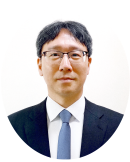The Institute for Japanese Studies at Seoul National University (IJS) is an academic institution dedicated to the empirical understanding of the everyday world of contemporary Japan. While grounding our work in rigorous research on history, literature, and thought, which are essential fields for understanding any society, we also pursue a comprehensive exploration of politics, economy, society, and culture in order to accurately grasp structural transformations in modern Japan. Through these efforts, the IJS has produced notable scholarly achievements on contemporary Japan that are comparable to those of leading institutions worldwide. At the same time, the Institute seeks to share balanced knowledge about Japan, which is often regarded as a “difficult neighbor,” in Korean society.
The IJS has been able to build such a solid foundation of research, with the generous support of various institutions both within and beyond Seoul National University. In 2008, we were selected as an Overseas Area Studies Organization under the Humanities Korea (HK) Program, and in 2019, we were selected as part of the Humanities Korea Plus (HK+) Program. These recognitions provided the institutional framework for our full-time researchers to take responsibility and leadership in scholarly activities. As a result, we have consistently produced outstanding achievements in academic research, publication, social contribution, and the nurturing of future scholars. On this basis, the IJS has been designated as a Top Research Institute in five consecutive triennial internal evaluations since 2012. We also received high marks in the ten-year overall assessment of the Humanities Korea Program, establishing ourselves as a model among university research institutes.
A deeper understanding of Japan remains vital for us today. Since the mid 1990s, Japan has struggled to recover from prolonged economic stagnation, while Korea has undergone rapid innovation and, by the twenty-first century, has reached per capita income levels comparable to Japan. As a result, Japan is no longer regarded as a developmental model for Korea. At the same time, historical disputes have strained relations, leading some observers to regard Japan as an untrustworthy neighbor.
Nevertheless, given the rapidly changing international environment, Japan remains one of the essential partners with whom Korea must cooperate. Japan is also a vital counterpart for addressing shared socioeconomic challenges that both countries face. These challenges include low birthrates and population aging, the transition toward a multi-ethnic society, and persistent or widening disparities across class, gender, and region. This makes a deep and empirically grounded understanding of Japanese society more urgent than ever.
Since its founding in 2004, the Institute for Japanese Studies at Seoul National University has sought to situate Japan within the context of Korea and East Asia, while remaining attentive to global currents in Japanese studies. The Institute has consistently shared its research outcomes with both the academic community and the wider public. Looking ahead, we will continue to engage with scholars worldwide, communicate the distinctive experiences of Japanese studies developed in Korea, and actively contribute to opening new horizons in the field. As always, we sincerely ask for your continued interest and support. Thank you.
